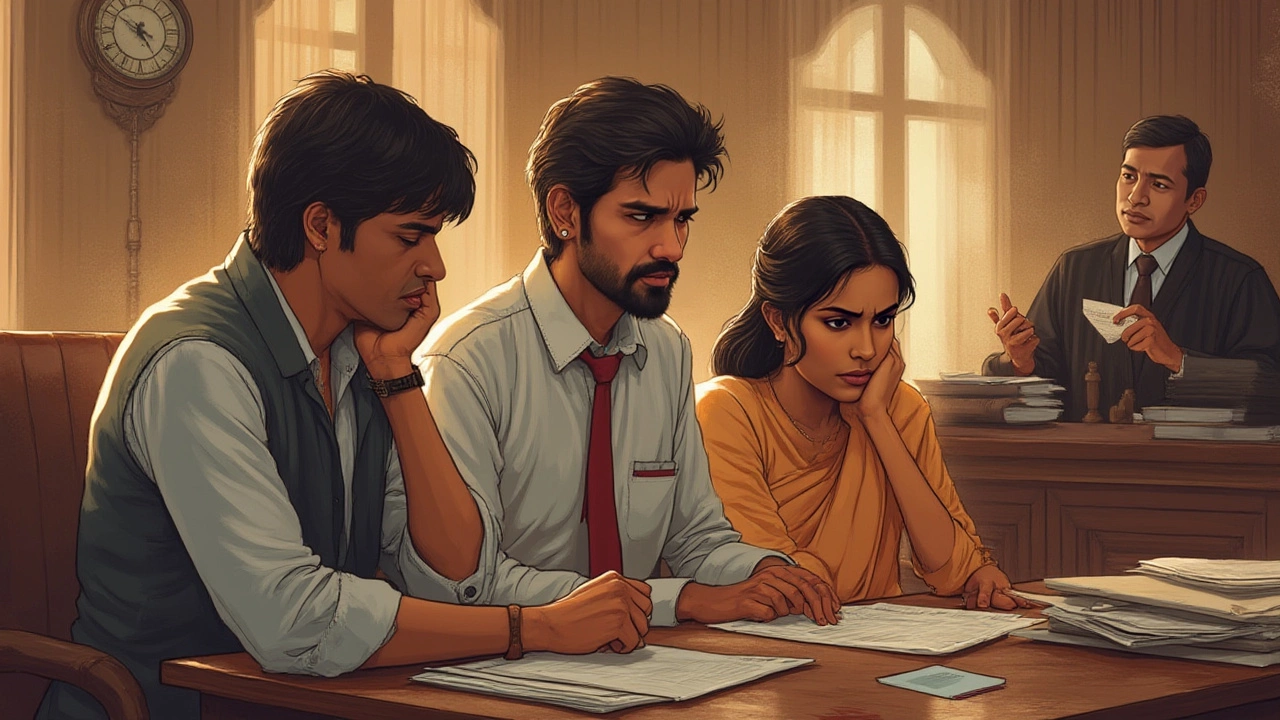Divorce in India: What You Need to Know
Thinking about ending a marriage can feel overwhelming, especially when you’re not sure which rules apply. In India, divorce isn’t just a paperwork exercise – it involves a few legal steps, some timing tricks, and a lot of practical decisions. Below you’ll find a straight‑to‑the‑point rundown of the most common questions and the simple actions you can take right now.
Key Legal Requirements
First off, the law asks two things before it will grant a divorce: a valid ground (like cruelty, desertion, or mutual consent) and, in most cases, a period of separation. For mutual‑consent divorce, both spouses must have lived apart for at least one year and agree on the settlement. That’s why the question “Is living separately mandatory for divorce in India?” pops up a lot. The answer is yes – unless you’re filing under a fault ground that doesn’t need separation.
Next, you’ll need to file a petition in the family court that has jurisdiction over where either you or your spouse lives. The court will ask for basic documents – marriage certificate, proof of residence, and any evidence supporting your ground (for example, medical reports for cruelty or proof of desertion). Once the petition is accepted, a judge may order counseling, especially for mutual‑consent cases.
If kids are involved, the court’s priority shifts to their welfare. You’ll be asked to submit a child‑custody plan that covers living arrangements, education, and support. Remember, custody decisions are not about who wants the kids more; they’re about what’s best for the child’s stability and growth.
Practical Tips & Common Questions
How much will it cost? Divorce expenses vary. Mutual‑consent divorces are usually cheaper because they avoid a prolonged court battle. Expect filing fees, lawyer fees (which can range from a few thousand to lakhs of rupees depending on complexity), and potential costs for property valuation. One of our recent articles, “What Will I Lose If I Get Divorced?” breaks down hidden costs like division of assets, alimony, and emotional toll.
Who ends up paying? In most Indian states, the party who initiates the case pays the filing fee. However, the court can order the other side to cover lawyer fees or alimony if the settlement deems it fair. Our piece “Who Gets Hurt Most in a Divorce?” shows that financial loss often hits the lower‑earning spouse, so plan your budget accordingly.
Can I get a divorce without going to court? If both spouses sign a mutual‑consent agreement and meet the separation requirement, the court can grant the divorce in a single hearing. No lengthy battles needed, but you still need a lawyer to draft the settlement and ensure it complies with the law.
What about property? Shared assets are divided according to the principle of “equitable distribution.” This doesn’t always mean 50‑50; the court looks at each party’s contribution, earning capacity, and future needs. If you own a house in your name alone, you might keep it, but any jointly held property will be split.
Finally, take care of your mental health. Divorce can feel like a roller coaster, but reaching out to a counselor or support group can make a huge difference. Our guide on “Is Living Separately Mandatory for Divorce in India?” includes a short checklist to keep you organized and less stressed.Bottom line: divorce in India follows a clear legal path, but the journey can be smoother if you know the rules, budget for costs, and plan for your children’s future. Use the resources on India Legal Guide to find a specialist family lawyer, read our detailed articles, and take one practical step at a time. You’ve got this.
How Long Does Divorce Take in India? Timelines, Processes, and Tips to Fast-Track Your Divorce
Curious about how long divorce can take in India? Explore timelines, the steps, and ways to speed things up. Clear answers, useful tips, and real facts inside.
Quick and Legal Ways to Divorce in India: An In-Depth Guide
Divorce in India can vary in time depending on whether it's contested or mutual. This article provides insights into the necessary steps for obtaining a mutual divorce swiftly, highlighting the legal requirements and paperwork involved. It also discusses alternative measures such as mediation and the importance of choosing a skilled divorce lawyer. Understanding these elements can significantly shorten the divorce process while ensuring all legal perspectives are considered.

